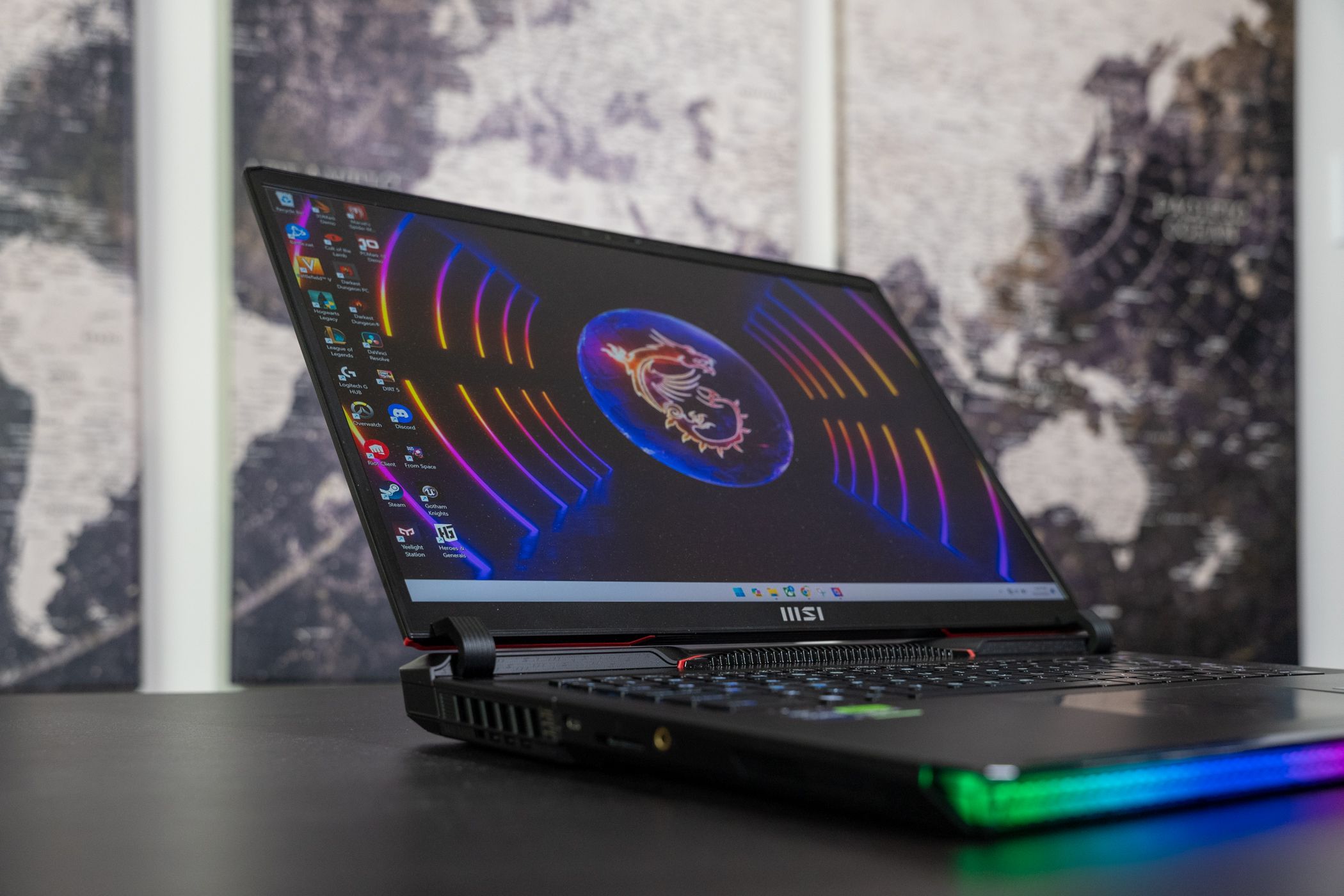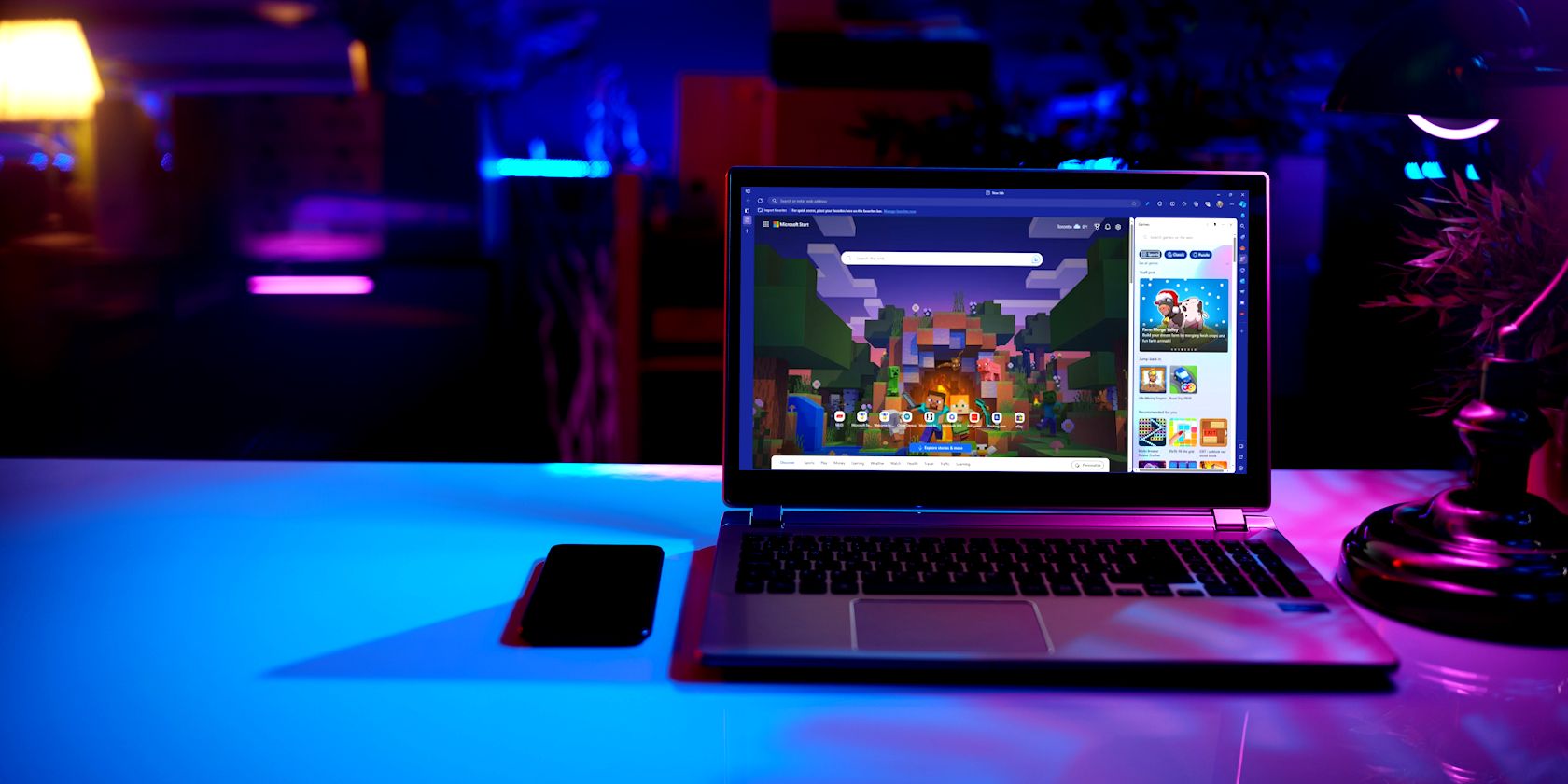Key Takeaways
- Gaming laptops offer unmatched portability, allowing me to game anywhere and anytime—unlike a desktop or console.
- Gaming laptops require less space due to their compact design and can be easily stored elsewhere when not in use.
- The integrated screen, keyboard, and speakers on a laptop eliminate the need to buy and maintain additional peripherals.
The age-old debate among gamers: laptop, desktop, or console? While each option brings its own set of benefits to the table, for me, gaming on a laptop stands out in a unique way. Here’s why I’ve consistently opted for a laptop over other gaming setups.
1 Portability Is Key
One of the most obvious and perhaps the biggest advantages of gaming on a laptop is portability. Unlike a traditional desktop or console setup, a gaming laptop allows me to take my setup wherever I go. Whether I’m traveling, visiting friends, or simply want to change my gaming environment, the option to game anywhere is incredibly convenient.
Even at home, I’m not restricted to a desk or a specific spot. I can move around and game from the couch, bed, or anywhere else. This flexibility makes the gaming experience much more enjoyable for me.
Unlike many older gaming laptops, modern models like my Asus ROG Strix G16, for instance, are quite lightweight and compact. So, carrying them around isn’t a hassle. For gamers who are always on the move, the freedom to game anywhere, anytime, is a significant advantage that desktops or consoles simply can’t offer.
2 Space-Saving Design
Another benefit of gaming on a laptop is how little space it requires. I can fit everything I need for intense gaming on a small table. This is especially useful since I don’t have much space to spare. The minimalist design of a gaming laptop allows me to easily move it out of the way when I’m done playing, freeing up my desk for other activities, such as reading.
The compact nature of a laptop helps a lot, especially in smaller living spaces like apartments. There’s no need to dedicate an entire section of my home to a gaming setup, as I would with a full desktop rig.
A laptop allows me to game comfortably in a shared space or a small corner while maintaining top-tier performance. Once I’m finished, I simply close the lid, and it’s like the setup was never there—no bulky monitors, towers, or wires cluttering my space.
3 No Need for External Displays or Peripherals
I love how I can simply open the laptop, turn it on, and immediately jump into my game. There’s no need to fuss with extra monitors, keyboards, or speakers. Everything I need is built right into the laptop. At most, I only need to buy a good gaming controller and a mouse.
This not only streamlines my gaming experience but also saves me valuable time. I don’t have to deal with the hassle of connecting various components or managing a tangled web of cables. Even if I opt for wireless gaming accessories, I still need to charge them all separately, which adds to the hassle and maintenance.
The integrated screen, keyboard, and speakers on a laptop mean that I have everything I need right at my fingertips, which means fewer things to worry about. In contrast, a full-fledged desktop setup typically requires multiple peripherals, such as a display, keyboard, and more.
4 Better Battery Life for Longer Play Sessions
Unlike a traditional desktop or console setup, my ROG Strix G16—or any good gaming laptop, for that matter—can last a solid 3-4 hours of intense gaming on a single charge. This is quite convenient, as it offers the freedom to move around without the usual hassle of constantly plugging and unplugging everything.
It’s the flexibility to game anywhere, anytime, that makes the experience so much more enjoyable. Whether I’m lounging on the couch, chilling in the backyard, or visiting a friend’s place, my laptop’s battery ensures that I can enjoy uninterrupted gaming sessions for hours.
5 I Can Customize the Gaming Performance to My Liking
Another reason I prefer gaming on a laptop, especially over a gaming console, is the incredible level of customization it offers for performance. I can adjust the graphics settings, tweak the resolution, and even overclock the GPU for better FPS. While I may not do this for every game I play, having the option to do so is a significant advantage.
Moreover, I can use software like MSI Afterburner to monitor and manage my laptop’s performance in real-time. Apps allow me to track my laptop’s temperature, adjust fan speeds, and manage power consumption.
This level of control ensures that my laptop is always performing at its best, whether I’m playing the latest AAA titles or enjoying a quick session of an indie game. It’s like having a personal gaming setup that evolves with me, adapting to whatever game I’m playing and the performance I need.
6 Versatility for Both Work and Play
Lastly, in terms of versatility, a laptop stands out in a way that handheld devices or consoles simply can’t match. A gaming laptop is still a laptop, and for me, it’s not just a gaming machine—it’s my go-to tool for virtually everything I need to do.
With a laptop, I get the best of both worlds. The same device that runs the latest games with smooth graphics and high frame rates also supports my professional endeavors without breaking a sweat. It’s a powerful gaming rig when I need it, and a capable workhorse when I’m tackling tasks—whether that’s working on a complex spreadsheet, writing an article, or diving into a creative project.
The benefit goes even further for someone like me who uses the same computer for work. Instead of investing in separate devices for gaming and productivity, my laptop covers all bases. It eliminates the need for a dedicated gaming console or a high-end workstation, allowing me to enjoy top-notch performance in both arenas without stretching my budget.
Gaming laptops have evolved remarkably in recent years, becoming more powerful and feature-rich with each new model. The benefits I’ve highlighted are some of the key reasons why I prefer gaming on a laptop. If you’re considering a gaming device and can’t decide, be sure to weigh the pros and cons of a gaming PC, laptop, and console.





